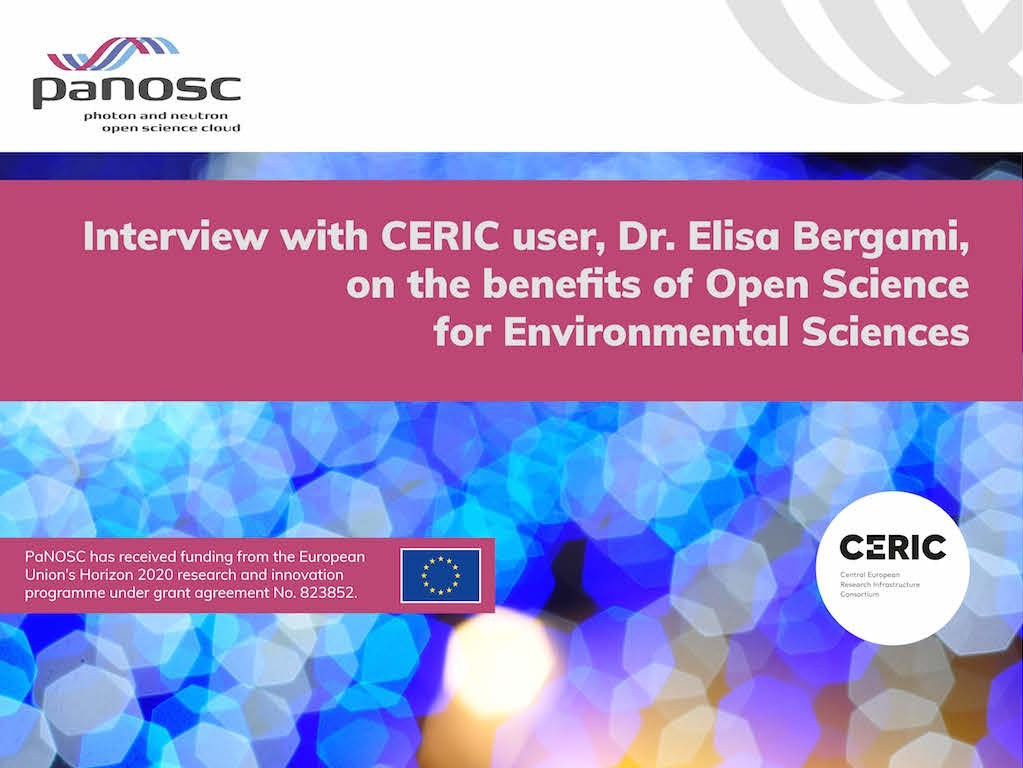Interview with CERIC user, Dr. Elisa Bergami, on the benefits of Open Science for the Environmental Sciences
Dr. Elisa Bergami, PhD in Ecotoxicology, is a post-doc fellow at the University of Siena, Italy. She has been working in the field of Environmental Sciences, with a focus on the impact of nanoplastics on marine organisms in Antarctica. In a study recently published in The Royal Society Biology Letters, Dr. Bergami – with a group of researchers from the University of Siena, the University College Dublin, and CERIC-ERIC / Elettra Sincrotrone Trieste – gave the first field-based evidence that plastic debris are entering the Antarctic terrestrial food web. Results stemmed from an analysis with the Fourier Transmission Infrared microscopy FTIR at CERIC-ERIC, which allowed detecting the presence of microplastics in the gut of Antarctic collembolans. In the frame of the PaNOSC project, we interviewed Dr. Bergami, to ask her opinion about Open Science, and its benefits for the community of researchers in the Environmental Sciences. Watch the interview here >> https://bit.ly/Interview-Bergami-on-OpenScience “I think that sharing data among scientists should be the purpose of us doing science” – Dr. Bergami said. She made some examples of data platforms for Antarctic environmental sciences, such as the Southern Ocean Observing System (SOOS), where data acquired on climatology and oceanography are stored, and the Commission for the Conservation of Antarctic Marine Living Resources (CCAMLR), which collects data, for instance, on plastic debris, making them available to everyone. To the question on how to steer a cultural change among the scientific community, towards the adoption of more FAIR data practices, Elisa replied that dissemination and knowledge sharing are the key ingredients towards this shift, which is already taking place, with many scientists already promoting the benefits of open data sharing, at conferences and scientific events. For example, as part of the Scientific Committee on Antarctic Research (SCAR), researchers involved in the Plastic in the Polar environments Action group are highly encouraged to share their datasets with the community. Some difficulties have also been highlighted, with reference in particular to open access publishing, but Elisa is optimistic, and mentioned that the next framework programme, Horizon Europe, envisages to provide dedicated funding for sharing datasets and publishing only open access. Elisa concluded highlighting the opportunities for low-income countries, which would benefit enormously from Open Science and more open access datasets and publications, towards an increased international collaboration. Watch the interview here >> https://bit.ly/Interview-Bergami-on-OpenScience Stay tuned for further updates and follow PaNOSC on Twitter: @Panosc_eu https://twitter.com/Panosc_eu
Keywords
EOSC, Open Science, Open Data, Open Access, FAIR data, PaNOSC, CERIC, CERIC-ERIC, Microplastics, Antarctica, Environment, Environmental Sciences, Central European Research Infrastructure Consortium, Elisa Bergami



